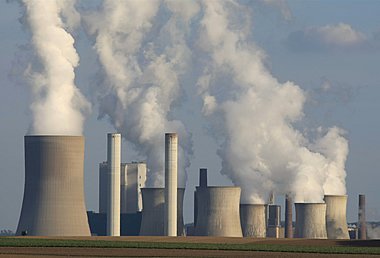The report of the Finance and Expenditure Committee on the Moderated Emissions Trading Amendment Bill has been released and outlines the reasons for dissent among committee members on whether the amendments should proceed.
The committee reported:
 “We were unable to reach agreement on whether to recommend that the Climate Change Response (Moderated Emissions Trading) Amendment Bill be passed, because of members’ differing views as to the suitability of the bill’s proposed changes to the design of the New Zealand Emissions Trading Scheme (NZ ETS). We also could not agree on the kinds of amendments from which the bill might benefit if it were to be passed.”
“We were unable to reach agreement on whether to recommend that the Climate Change Response (Moderated Emissions Trading) Amendment Bill be passed, because of members’ differing views as to the suitability of the bill’s proposed changes to the design of the New Zealand Emissions Trading Scheme (NZ ETS). We also could not agree on the kinds of amendments from which the bill might benefit if it were to be passed.”
A high number of submissions, many from scientists or scientific organisations, were considered by the committee.
“By the submission closing date of 13 October 2009 we had received 379 written submissions, the majority of which were from individuals. We heard from 128 submitters over five days between 15 October and 27 October 2009,” it reported.
Significant changes to the Emissions Trading Scheme that were proposed:
– Free allocations of New Zealand Units would be made to emissions-intensive, trade exposed industries on an intensity basis. During the transition phase to 31 December 2012, emitters would be required to surrender one unit for every 2 tonnes of CO2 equivalent emissions, and the level of assistance would be phased out at a rate of 1.3 percent per annum beginning in 2013.
– A transitional phase would operate until 2013, during which time participants in the Stationary Energy and Industrial Processes and Liquid Fossil Fuel sectors would face a progressive unit-surrender obligation, or have an option to pay $25 per tonne of emissions in lieu of the unit-surrender obligation, from 1 July 2010.
– Entry of the agricultural sector into the scheme would be delayed until 1 January 2015. The default point of obligation for the sector would be set at the processor level, with flexibility to move to the farm level in the future.
– Free allocations to the fishing sector would be increased from 50 percent to 90 percent of 2005 emissions from 1 July 2010 until 31 December 2012. The allocations would be made to quota owners rather than vessel operators.
– A regulation-making power would be created to set a domestic emissions reduction target for New Zealand. It is proposed that this target would specify a target reduction in emissions of 50 percent of 1990 emissions levels by 2050.